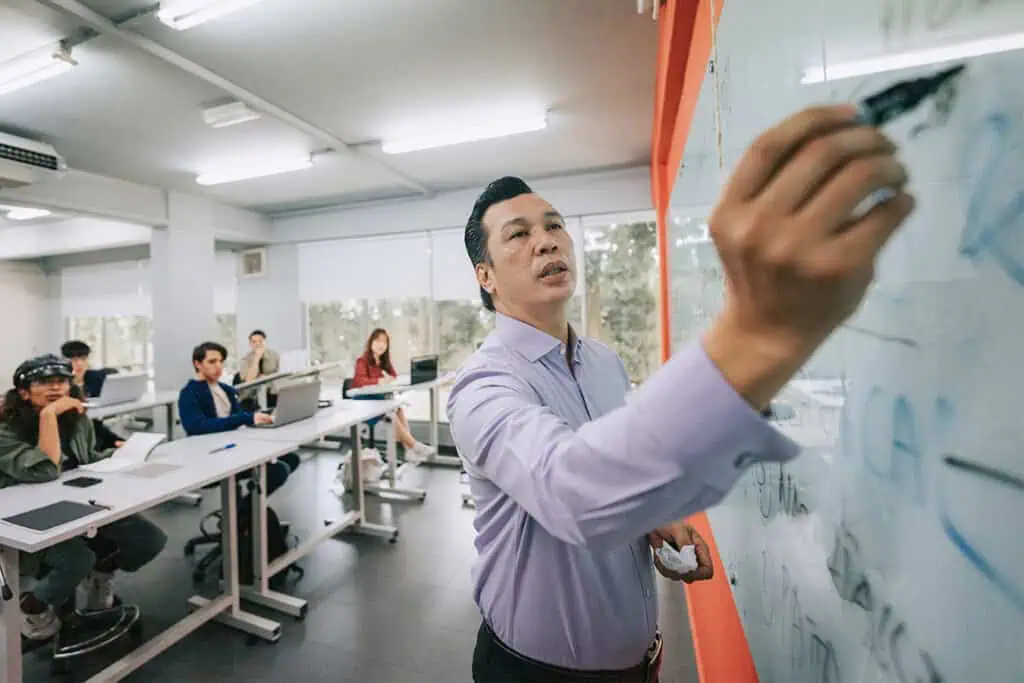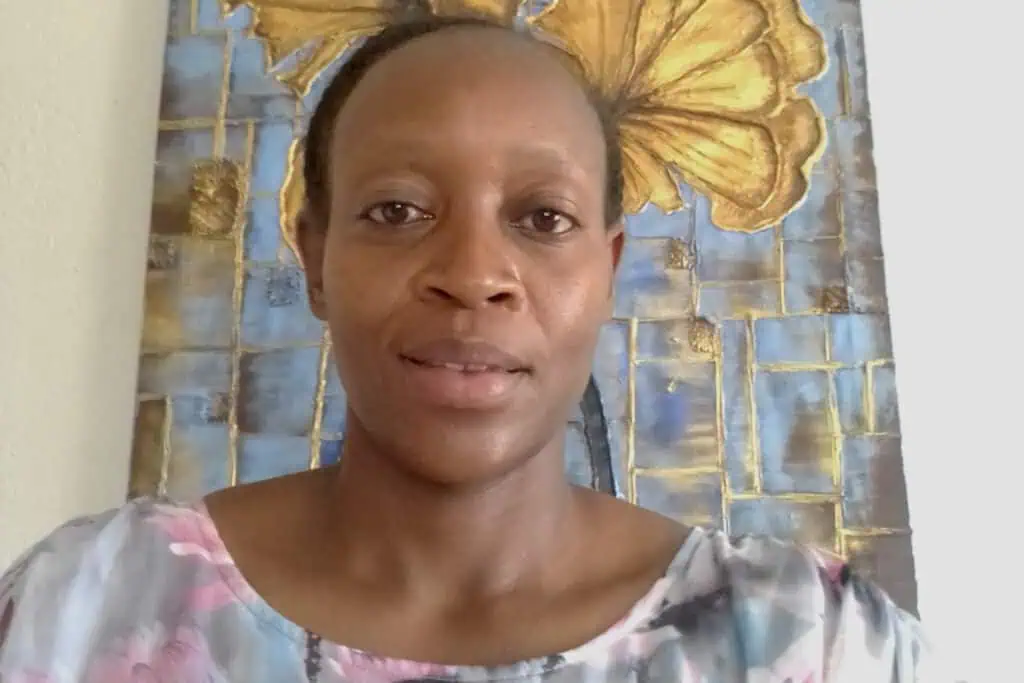Life as an International Student in San Francisco
We recently spoke with WES expert ambassador Sara Varela-Acevedo who handles international admission at the University of San Francisco. She had many insights to share with international students about academics, student visas, housing, and life in San Francisco in general. Read on to get her thoughts.
What is life like for an international student in San Francisco?
Life in San Francisco is whatever a student makes of it. Students have shared that there is always something to do between university events and what the city of San Francisco has to offer. How busy or relaxed a student wants to be is up to them.
International students can expect to be busy as a student at the University of San Francisco (USF). Students select their program and class schedule, which sets the pace of their studies. On the academic side, they are supported by various offices, such as academic advising and International Student and Scholar Services (ISSS).
Socially, students can get involved in clubs and organizations, as well as participate in many activities that the city has to offer.
Tell us about your university and where it is located in the city.
USF is San Francisco’s first university and was founded in 1855. We are a community-minded Catholic, Jesuit institution, which means we have a strong focus on social justice. USF prides itself in our students who involve themselves in the community by researching, volunteering, spending time in internships, and venturing out
in personal exploration.
USF is located on the West Coast of the United States in a quiet, residential neighborhood near the center of San Francisco. Our location gives our students easy access to the entire city, as well as the greater San Francisco Bay area. Students are within walking distance to the Golden Gate Park, a variety of great restaurants, and an easy 20-minute bus ride to the beach or to downtown SF.
Can you tell us about your role at the University of San Francisco?
I am the associate director of international admissions. My job is to work with prospective undergraduate applicants to the University of San Francisco, specifically, students from Canada, Latin America, Africa, and Europe.
I assist prospective students in understanding the U.S. education system, the application process, immigration processes, and provide them with relative information about the programs we offer at USF. This can happen via recruitment trips to various locations, emails, campus visits, and phone calls.
If a student has applied, I aim to ensure a decision is made and have the enrollment process proceed as smoothly as possible. I focus on collecting documents and communicating what to expect during the application process. If the student has been admitted, I inform them of what their next steps should be which includes making a deposit, finding housing, registering for classes, and making travel plans.
Simply put, I am a university liaison to any student who is interested in coming to visit and enroll in the University of San Francisco.
San Francisco is known to be an expensive city. What advice do you have when it comes to finding housing?
I reached out to students to inquire about what advice they would have for this question. The strongest recommendation is to find a group of friends who are willing to share an apartment. It helps reduce the cost of housing and it is also nice to have others around in your living space. Many times, students will find out about housing opportunities by word of mouth, such as when a friend is moving, or when a classmate is leaving for a semester or year abroad.
The university has an off-campus housing representative to assist students looking for housing as well. USF has a housing list to aid students, with most postings within walking distance or a short bus ride away. Students also rely on various online resources with Craig’s List as a popular choice.
International students can also work with our ISSS office to receive supportive documents when applying for their first apartment off-campus. Leasing requirements often require things such as credit checks, which most international students are unable to provide. ISSS can help provide documentation to meet those requirements in an
alternate manner.
First-year students are required to live on campus for the first year. Once the first year is over, most students move off campus by their second year. Housing costs are similar whether a student decides to try and stay in a campus dormitory, or if they decide to find an off-campus option.
What are some common questions you get asked by prospective students?
Here are some common questions that I get asked by prospective students:
Q: How is the food?
A: For a college campus, we offer a great variety to students. Being located in a “foodie” city, our cafeteria has many options including vegan and gluten-free.
Q: What is it like living on campus?
A: Current students would say living on campus makes it easy to meet people and make friends. It is a good place to start while learning about the city and having all of the university’s resources within walking distance from your living space. The central location also makes it easy to move around the city. A perk I did not expect but was highlighted as being important is that the campus is also open to students at all hours which makes it easy to find a place to study.
Q: Are there any scholarships or financial aid?
A: First-year (freshman) international applicants are eligible for merit awards based on their GPA and SAT or ACT scores. It is an automatic consideration, so students do not need to submit a separate application. Currently, these scholarships range from 5,000 to $22,000 (U.S. dollars). International transfer students are not eligible for monetary awards. Students who hold a non-immigrant visa are not eligible for any financial aid or loans through the university.
Q: What is there to do in SF?
A: So much! A few student favorites are hanging out in Golden Gate Park, walking down Haight Street, finding good food in Clement, enjoying the food selection at Off the Grid events, and exploring the Mission for art, food, and places to hang out. We apparently really like to eat!
Q: What is the student schedule like?
A: Students create their own schedules with classes that range from 8 a.m. to 8 p.m. A student may have classes every day of the week, or they may only have classes two days a week.
Q: How do I transfer my SEVIS record?
A: If you already have an I-20, your new university will need to wait for your current Student and Exchange Visitor Information System (SEVIS) record to be transferred from your current school. To request your current school to transfer your SEVIS record, you will need to submit a copy of your admission letter to your current school and provide them with your new school’s SEVIS school code. Most schools will usually include a transfer form or a set of instructions.
Q: What kind of proof of funding do I need to submit?
A: Each school is required to verify a student has enough funding to cover all study-related costs. At the University of San Francisco, we require proof of funding for $68,884. This covers all expected expenses including tuition and living and traveling expenses. This is not the expected amount a student will pay to the university, but what the expected cost of travel and living is for our specific location. This requirement is usually met with a bank statement or a letter from the bank that demonstrates the amount of funding available to the student.
Do you have any advice or insights when it comes to funding for students?
When applying to universities and colleges in the U.S., I would recommend students to reach out to each individual school to inquire what the scholarship and financial aid opportunities are. At the University of San Francisco, we offer merit awards to first-year students based on their GPA and SAT or ACT scores, but this award is not available for transfer applicants. Students who hold a non-immigrant visa are not eligible for financial aid. While this is the case at USF, it may not be at other schools, so it is important to ask.
I would also recommend students to reach out to their local EducationUSA center as they often have resources that are applicable to students from specific regions. A few other sites such as the International Education Financial Aid (IEFA) website and Scholarships for Development also provide resources.
What types of work opportunities can students find in San Francisco and what is the job market like?
USF prides itself in having an extensive network throughout the Bay Area. Students can participate in an internship and volunteer opportunities in their field of study. While we have a career center that can assist students with their search, each department also has its own network that students can take advantage of.
As for the job market, like all things, there are no guarantees, whether a student is international or domestic. We encourage international students to participate in Optional Practical Training (OPT) to continue to gain work experience post-graduation. While this will not always lead to employment sponsorship, it does allow students to continue to network to reach the next step in their career.
What are the three main takeaways you have for students interested in studying at the University of San Francisco?
Here are my three main takeaways:
- Location: San Francisco offers a little bit of everything, regardless if you are a food, art, outdoors, or sciences enthusiast. There is something for everyone in this city.
- Program flexibility: Students can combine all of their academic interests and find classes that apply. You can graduate with a degree in science and art, or history and computer science to meet your long-term academic and professional goals.
- Smaller class sizes: Small classes mean more access to professors. Students often tell me the small class size has allowed them to succeed as it has allowed them to really get to know their classmates and teachers. They are better able to exchange ideas, network, and leverage the knowledge and connections their professors have to offer.
Do you have additional questions about studying in San Francisco or would like to share your own experiences? Let us know below in the comments!





